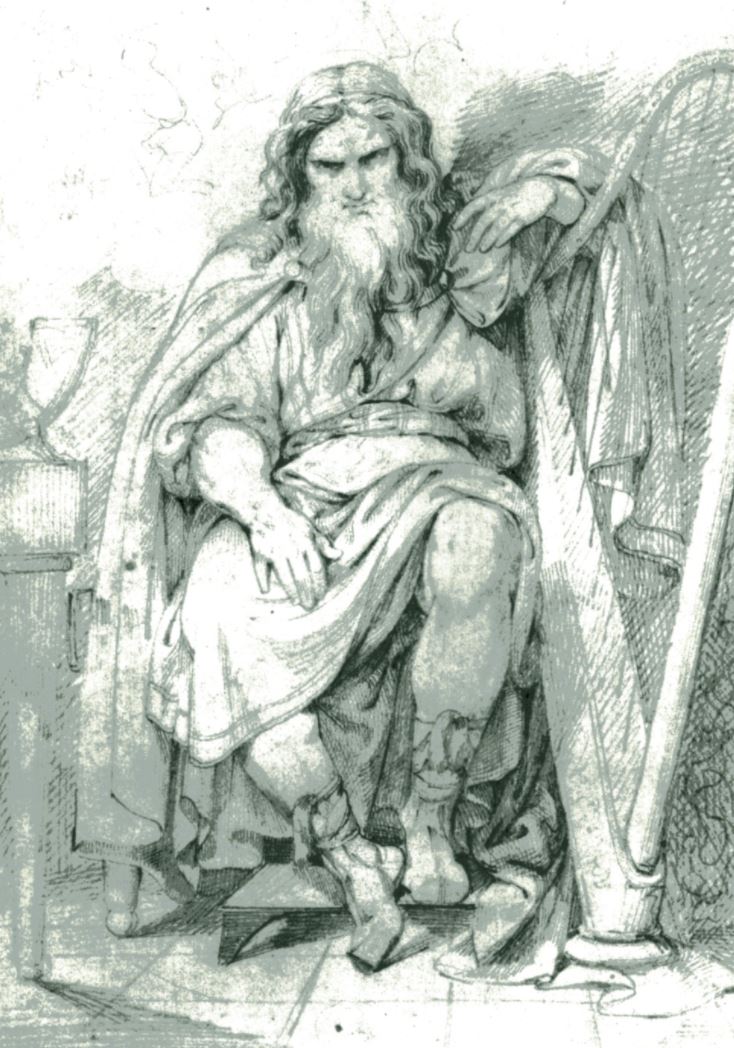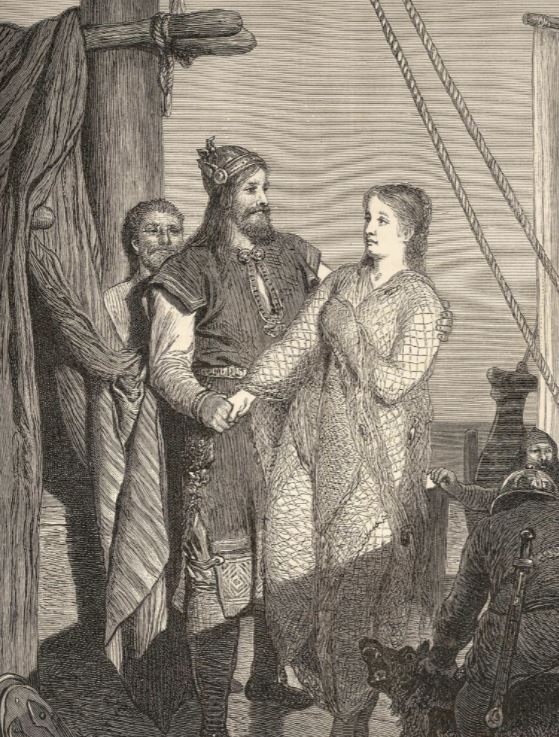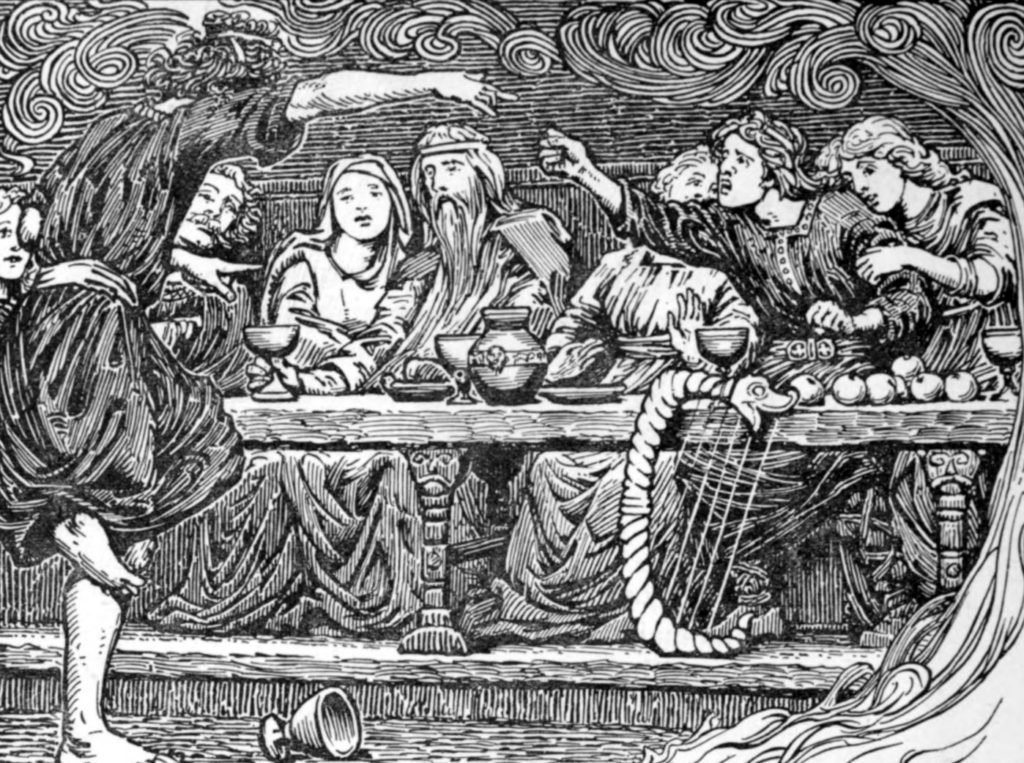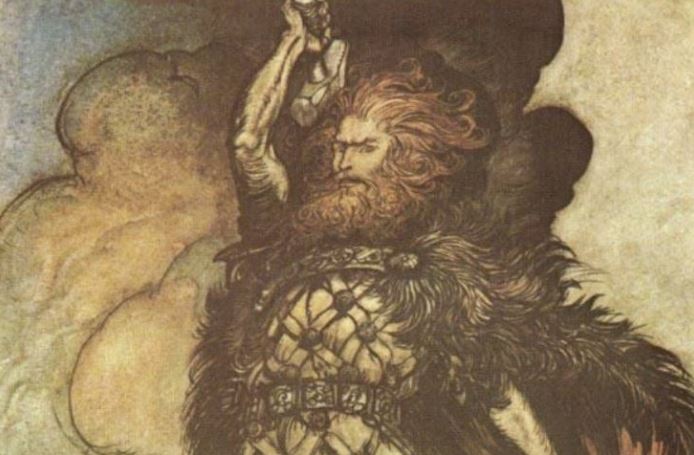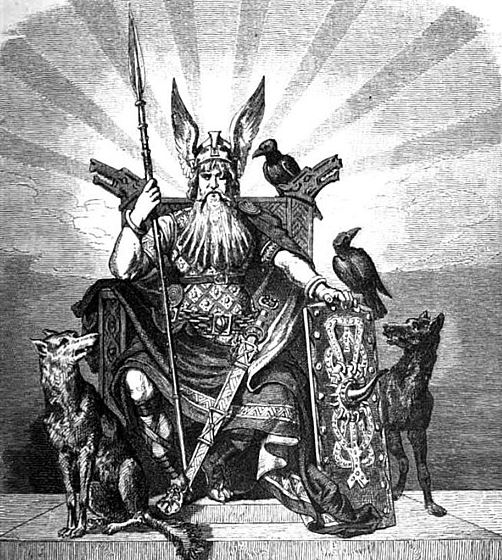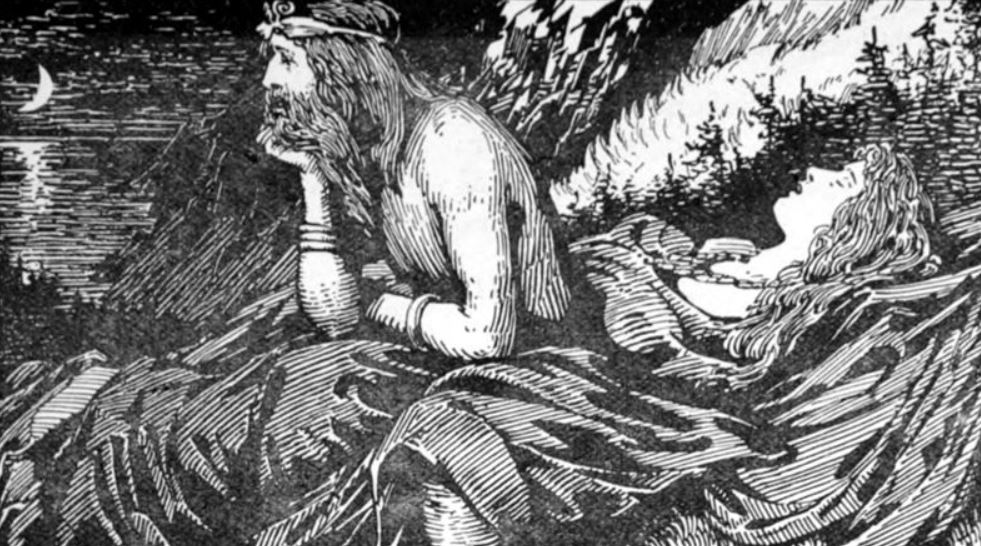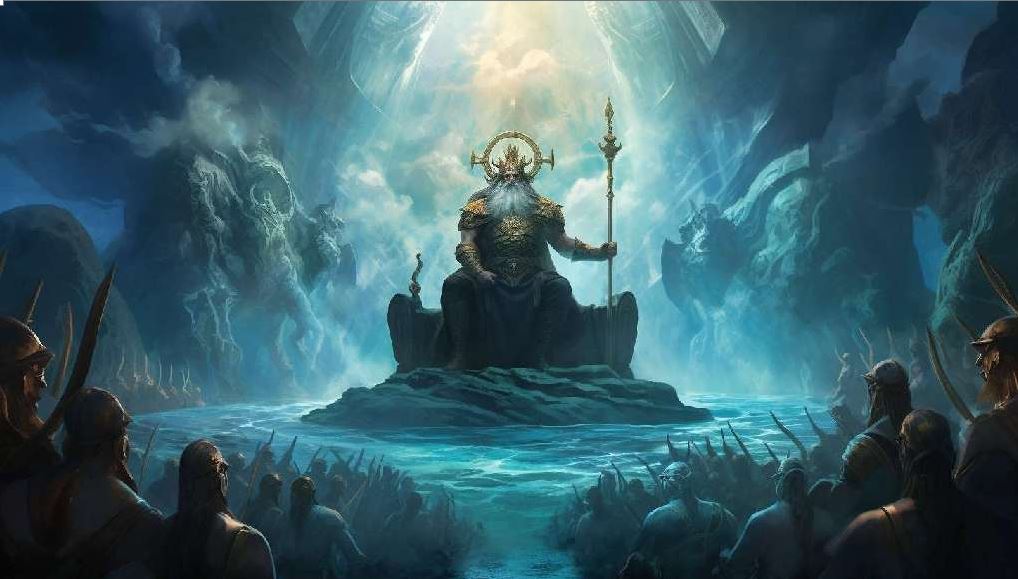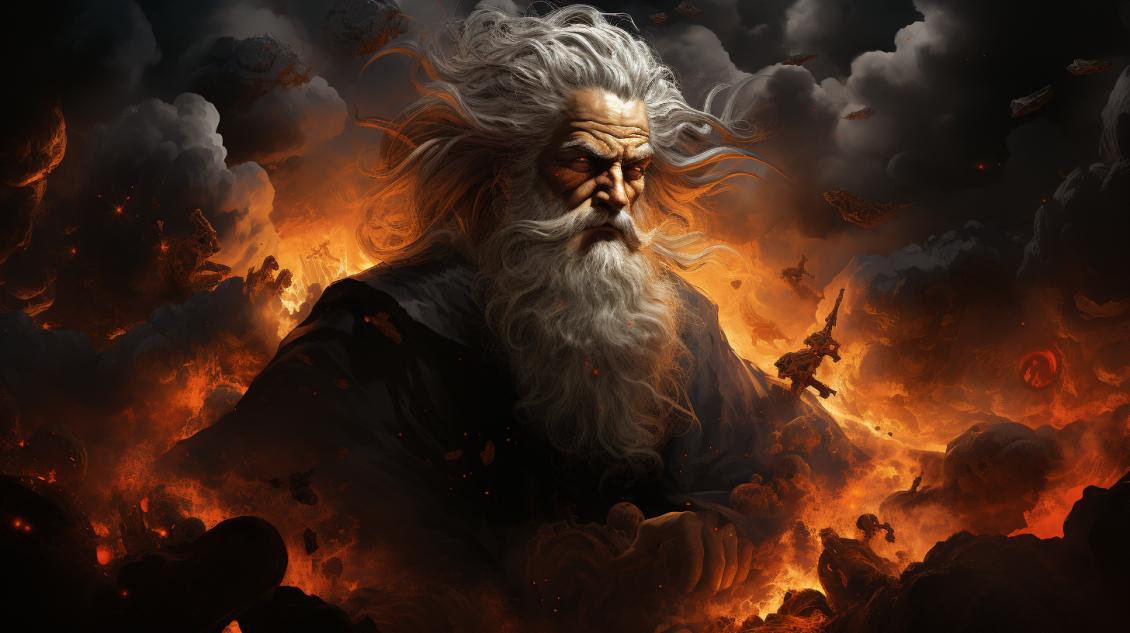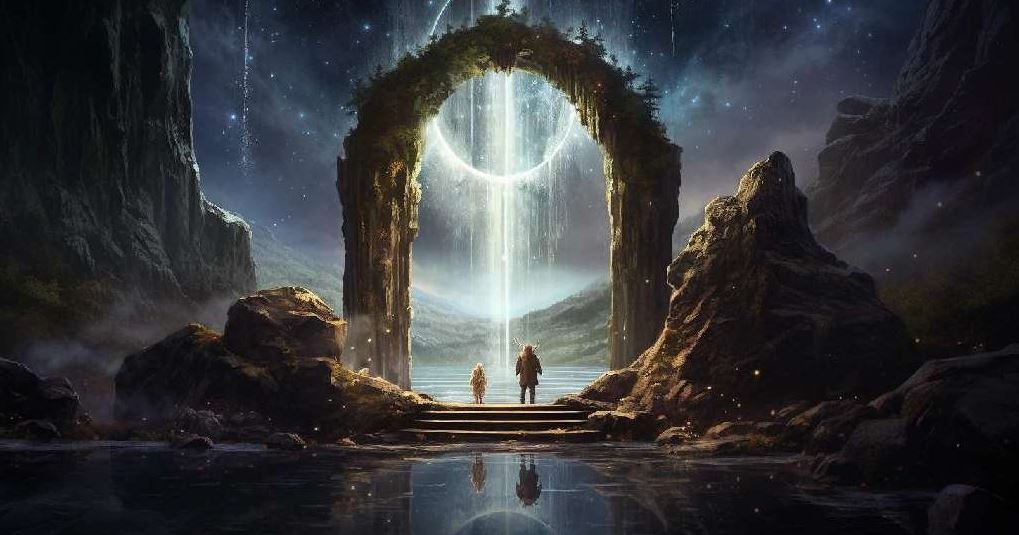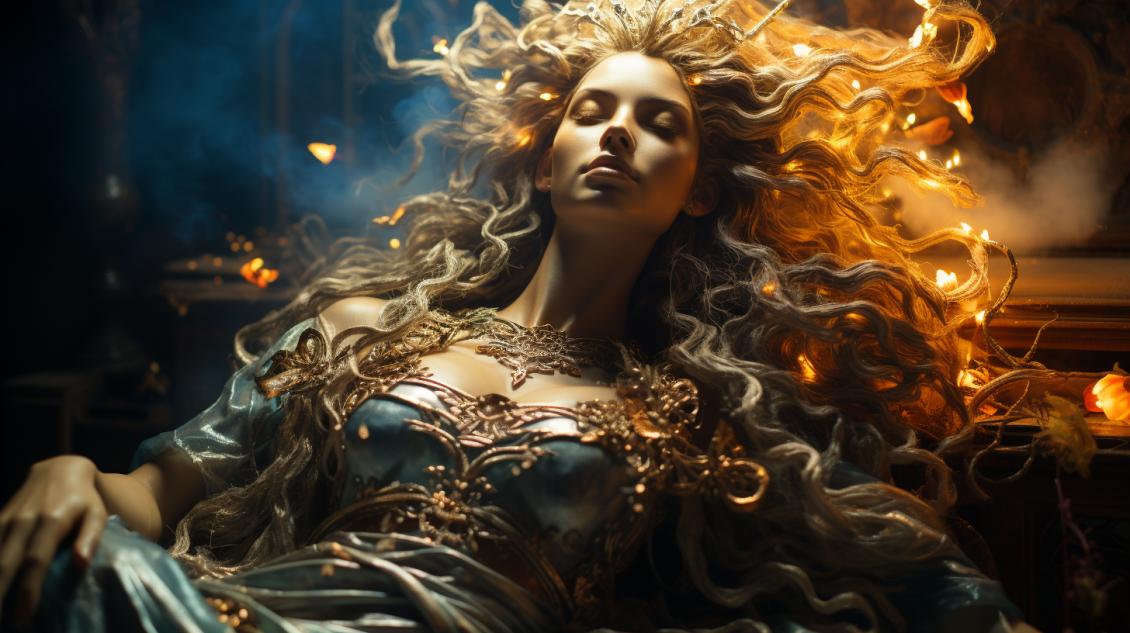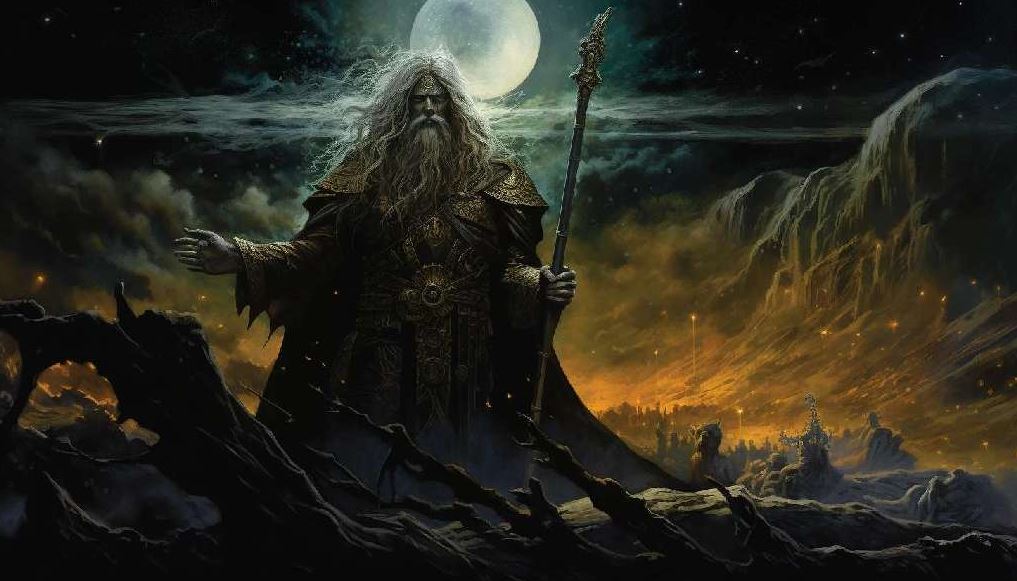Norse God Bragi, The Poet and Patron of Skalds
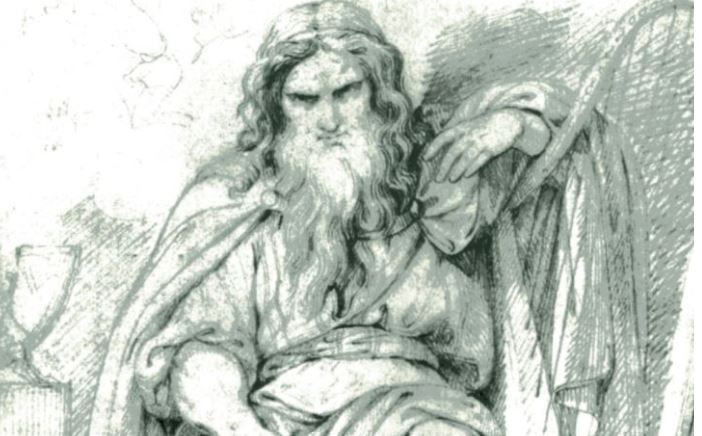
In Norse mythology, the Skalds were essential to the Viking people. An being the son of Odin and a giantess called Gunnlod, the Norse god Bragi Boddason, was the god of poetry, knowledge, music, and the patron of skalds and bards.
The Norse god Bragi’s poetry was quite creative and moving to anyone blessed to hear it.
Bragi was married to Idun, the goddess whose golden apples kept the gods and goddesses immortal. After he passed, Odin made him the poet of Valhalla.
Norse god Bragi: Origin of his Name
The name of the Norse god Bragi comes from the Old Norse word bragr, which means poetry.
Vikings often referred to their scholars and poets as bragamen or bragawomen.
What is Bragi the god of?
The Norse god Bragi was the god of Poetry, Knowledge, Music, and Patron of Skalds.
A picture of Bragi Norse Mythology
History of Bragi god of poetry
The origin of Bragi comes from an affair that Odin had with a giantess named Gunnlod.
The and of the giantess father and she were in charge of protecting the “Mead of Poetry.” Odin wanted it so badly that he romanced her for days in order to get what he wanted.
After he drank the mead dry, he left her. The product of that affair was the Norse god Bragi, who was given the gift of poetry from his mother.
Half-god and half-giant, Bragi had an obligation to creatively and skillfully share the tales of Valhalla, the Viking’s legends, and the Norse mythology, poetically.
Even when many people named with his name, the Norse god Bragi Boddason is recognized as the first Skaldic poet remembered.
He served several kings, but most importantly served as an advisor to the infamous, Ragnar Lothbrok.
A picture of Ragnar Lothbrok receiving his wife-to-be Aslaug
Skalds were a class of scholars and professional poets with the gift of storytelling that conveyed the literature, myths, and legends of Norse culture.
Skalds were the teachers, musicians, and advisors to kings and royal families. In the early days of the Vikings, there were no written words.
Instead, Vikings memorized the stories and orally relayed the legends and myths. Similar to other cultures, Skalds resembled Irish and Scottish ollaves or bards and the Anglo-Saxon scops.
Historically, traditions were often passed from generation to generation orally, making scholars and other intellects highly valuable to these cultures and their stories of legends, myths, life lessons, and origins.
Being a skald was a position of power. Holding all of the knowledge and history of the Vikings is essential to their legend.
In definitive, for the Norse people, the Skalds were revered and respected humans that spoke of the immortal’s legends. Children learned the history of their culture with legendary myths that taught essential lessons about love and life and even purposed a model about how to behave.
Courageous heroes that save the day, beautiful women, and the tales of the gods and goddesses to express the origins of their worlds. Skalds were talented storytellers, making the history of the Norse culture remain relevant and exciting.
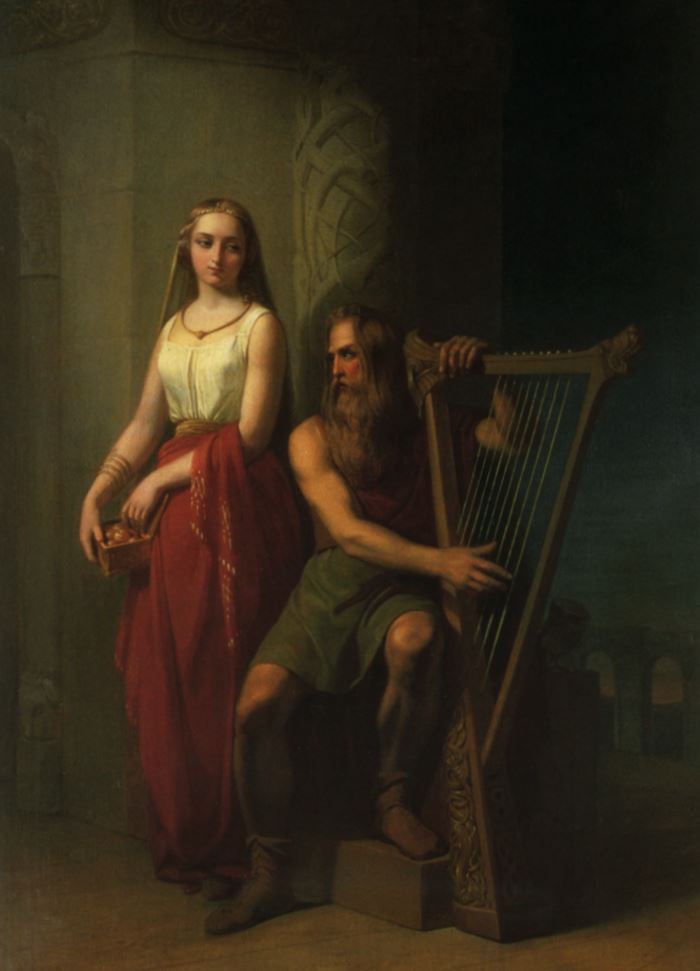
Norse god Bragi together with her wife Idun
Myths of the Norse god Bragi
Norse religion told myths of Norse gods and myths about them, but they were called traditions, not myths because they believed that Valhalla and the stories of the gods were truth. These myths were their truths. Thus, they believed the Norse god Bragi’s tales whole-heartedly.
The birth of Bragi god of poetry
Legend tells that Bragi was born from a devious and selfish plan. Odin wanted the “Mead of Poetry,” which was hidden in a cave and protected by a giant called Suttung and his daughter, the giantess Gunnlod.
Odin slithered into the cave as a snake. He made himself appear as a handsome lover to Gunnlod for three nights, he drank all of the “Mead of Poetry.” Bragi is the result of those three nights Odin spent romancing Gunnlod. He became referred to as the god with the golden tongue.
One myth portrays Bragi’s tongue as having runes, which are symbols that represent a kind of alphabet made from stone, wood, or metal that can foresee the future, cast spells, provide guidance, and offer suggestions about life.
Norse mythology often depicts Bragi as entertaining the einherjar, otherwise known as the dead that has joined the gods in Valhalla. The Norse god Bragi was welcomed into any of the nine realms to recant his poetry, share his stories, and entertain with his legendary myths.
Despite the Norse god Bragi’s presence appears in many Norse myths, most of these appearances are insignificant.
Ultimately, Bragi god of poetry was the most influential poet in Nordic history and legend.
Having the gift of the golden tongue from his giantess mother, Gunnlod, made Bragi a powerful character in the mythology of the Vikings.
Loki taunting the Norse god Bragi
Powers of the Norse god Bragi
The Norse god Bragi, holds the power of knowledge.
As a wise man, Bragi was a powerful poet and intellect of Valhalla, the home of the gods and goddesses. Holding the knowledge and words of every legend and myth of an entire culture is a power position.
The Norse god Bragi was gifted with the power of the golden tongue, which gave him a powerful role in Viking history.
Bragi Norse god symbols and their meaning
Bragi’s most well-known symbols are the harp, the book, and poetry. Bragi symbolizes the power of knowledge and poetry as the patron of the Skalds, the storytelling poets of Viking legends, literature, and myths.
Bragi Norse god symbol: the tongue with runes
The Norse god Bragi’s tongue being decorated with runes carved out of it symbolizes his wisdom and gift of knowledge and intellect.
Bragi god of poetry is often depicted as having a long beard with a tongue that has the runes carved into it. All of the symbolism surrounding Bragi and his legend relates to knowledge and poetry.
Being the patron of the Skalds shows how much he was revered for his creative storytelling skills and his incredible mind for poetry and knowledge.
Additional facts about Bragi Norse mythology
The Norse mythology is intriguing because most of the history of the Vikings was only shared orally by members of the Skalds.
Bragi is often found in many of the legends and myths told, but his role may seem insignificant in these stories.
He was the poetic storyteller of Valhalla and portrayed as an intelligent scholar and knowledgeable of Viking history.
Bragi Boddason, was the Norse god of poetry, knowledge, music, and the patron of skalds. An essential character in Norse mythology.

